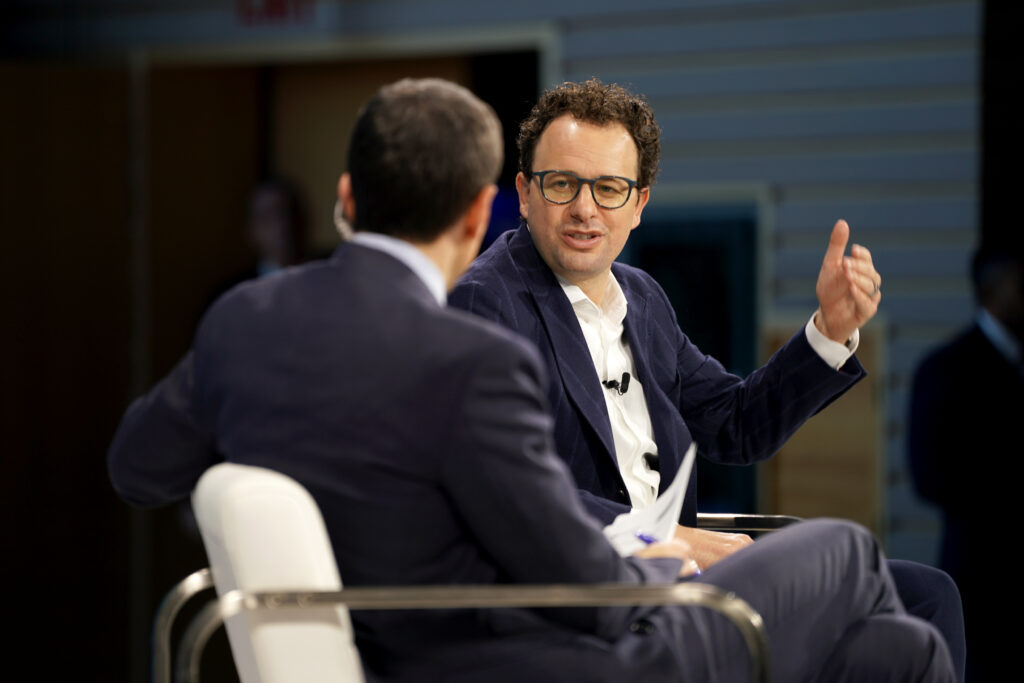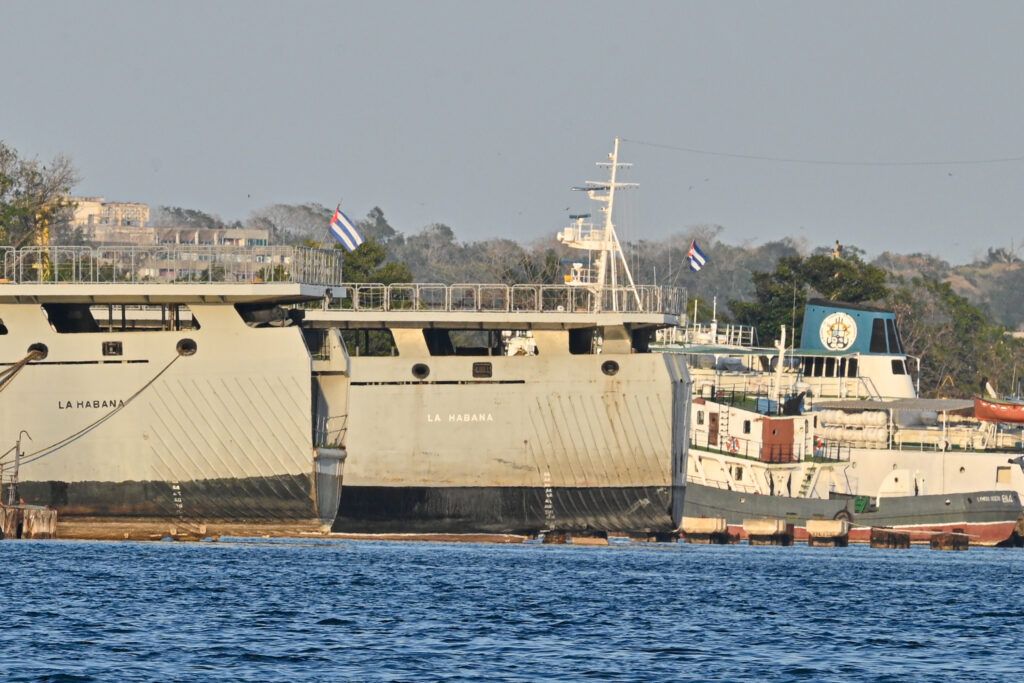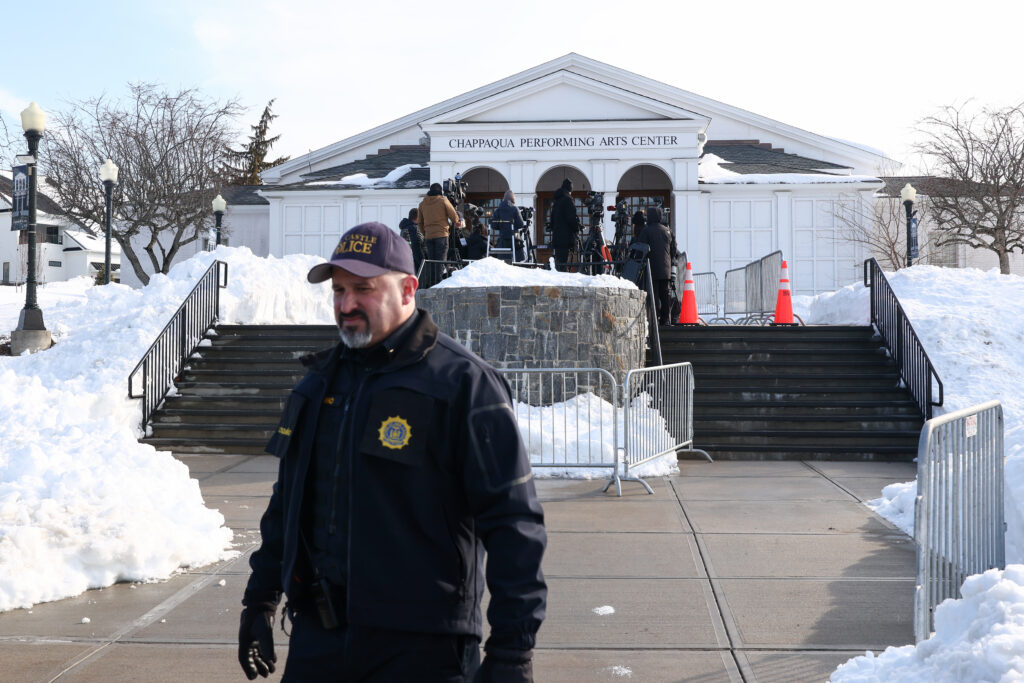Discussions Kiev-Washington à Genève, Moscou dit n’avoir “aucune échéance” pour mettre fin à la guerre
Les émissaires ukrainiens et américains ont entamé jeudi des discussions à Genève pour préparer de nouvelles rencontres trilatérales avec la Russie, Moscou ayant souligné pour sa part n’avoir “aucune échéance” pour mettre fin à la guerre.”Après les réunions d’aujourd’hui, les préparatifs pour la prochaine réunion trilatérale sont déjà plus avancés. Très probablement, la prochaine rencontre …
Anthropic says won’t give US military unconditional AI use
AI company Anthropic said Thursday it would not give the US Defense Department unrestricted use of its technology despite being pressured to comply by the Pentagon.”These threats do not change our position: we cannot in good conscience accede to their request,” Anthropic chief executive Dario Amodei said in a statement.Washington had given the artificial intelligence startup until Friday to agree to unconditional military use of its technology, even if it violates ethical standards at the company, or face being forced to comply under emergency federal powers.Amodei said Anthropic models have been deployed by the Pentagon and intelligence agencies to defend the country but that it draws an ethical line regarding its use for mass surveillance of US citizens and fully-autonomous weapons.”Using these systems for mass domestic surveillance is incompatible with democratic values,” Amodei said.And leading AI systems are not yet reliable to be trusted to power deadly weapons without a human in ultimate control, he added.”We will not knowingly provide a product that puts America’s warfighters and civilians at risk.”After meeting with Anthropic early this week, the Pentagon delivered a stark ultimatum: agree to unrestricted military use of its technology by 5:01 pm (22:01 GMT) Friday or face being forced to comply under the Defense Production Act.The Cold War-era law, last used during the Covid pandemic, grants the federal government sweeping powers to compel private industry to prioritize national security needs.The Pentagon also threatened to label Anthropic a supply chain risk, a designation usually reserved for firms from adversary countries that could severely damage the company’s ability to work with the US government and reputation.A senior Pentagon official at the time pushed back on the company’s concerns, insisting the Defense Department had always operated within the law.”Legality is the Pentagon’s responsibility as the end user,” the official said, adding that the department “has only given out lawful orders.”Officials also confirmed that an exchange regarding intercontinental ballistic missiles had taken place between Anthropic and the Pentagon, underscoring the sensitivity of the applications at the heart of the dispute.The Pentagon confirmed that Elon Musk’s Grok system had been cleared for use in a classified setting, while other contracted companies — OpenAI and Google — were described as close to similar clearances, piling competitive pressure on Anthropic to fall in line.Anthropic was contracted alongside those companies last year to supply AI models for a range of military applications under a $200 million agreement.Former OpenAI employees founded Anthropic in 2021 on the premise that AI development should prioritize safety — a philosophy that now puts it on a collision course with the Pentagon and the White House.”Anthropic understands that the Department of War, not private companies, makes military decisions,” Amodei said.”However, in a narrow set of cases, we believe AI can undermine, rather than defend, democratic values.”
US-based man killed by Cuba coast guard wanted to spark uprising: ally
A US-based man identified as one of those killed by the Cuban coast guard in a shootout had wanted to liberate the communist island, a political ally told AFP on Thursday.Cuba’s Coast Guard killed one American and wounded another when it shot at a speedboat on Wednesday, a US official said. Cuba said four people on board were killed, with another six wounded.The incident came amid deep tensions between Havana and Washington following the US overthrow of top Cuba ally, Nicolas Maduro of Venezuela.Cuba vowed to defend itself against “terrorist and mercenary” attacks after the fatal exchange of fire with the Florida-registered boat.On Thursday, Cuba’s deputy foreign minister Carlos Fernandez de Cossio said Washington had “expressed willingness to cooperate in clarifying these regrettable events.”Havana said all those on board the US boat were Cubans living in the United States, which has received several waves of emigration from the island since the 1960s.A political ally of one of those killed, Michel Ortega Casanova, told AFP that Ortega Casanova had spoken often of wanting to free his homeland.”His goal was to go and fight against a criminal and murderous narco-tyrannical (government), to see if that would spark the people to rise up,” said Wilfredo Beyra, head of the Cuban Republican Party in Tampa, Florida.Beyra said he had warned Ortega Casanova, reported to be a 54-year-old truck driver, now was “not the time to take such action” but that the other man had vowed to take action “at any moment.”Cuban authorities said a coast guard vessel came under fire from the speedboat around one nautical mile from Cuba’s north shore, adding that assault rifles, handguns, Molotov cocktails and military-style gear were all found onboard.The response from the United States government was muted.Secretary of State Marco Rubio, who was on a Caribbean visit, said that Washington was conducting its own investigation and would “respond accordingly.”He insisted that the US government had no hand in the confrontation.- Fighting for the homeland -The interior ministry said most of those on the speedboat had records in Cuba for “criminal and violent activity,” and that another man sent from the United States to take part in the operation was arrested on Cuban soil and confessed.A US official also said some on the boat had criminal records, and added that a US citizen who was injured was receiving medical care in Cuba.Beyra told AFP that several groups in Florida, home to over one million Cubans, “openly declare that they are willing, through military training, to fight for the freedom of their homeland.”He said he also knew one of the men identified by Havana as being wounded, Leordan Enrique Cruz Gomez, whom he met at a political event.The Cuban government frequently reports incursions by speedboats from the United States into its territorial waters, but deadly clashes are rarer.Incursion incidents are often related to people-smuggling to the United States or drug trafficking, and have included chases, shootouts and armed attacks on border guards.- Trump pressure -The latest clash comes as Cuba reels from US economic pressure.President Donald Trump has branded Cuba a “failed nation” and an “extraordinary threat” to US national security, though he has so far dismissed mounting a regime change operation.Cuba’s communist government lost one of its key diplomatic supporters — and a vital source of fuel for the country — in January when US forces toppled Maduro, effectively taking control of Venezuelan oil exports.The country had previously relied on Venezuela for about half of its fuel needs.After an outcry from Caribbean leaders, worried that starving 9.6 million Cubans of oil would cause the economy to collapse, the United States said Wednesday it would allow limited shipments of Venezuelan oil for commercial and humanitarian use.The Treasury Department said the Venezuelan oil would need to go through private businesses and not the Cuban government or the military apparatus that controls much of the island’s economy.burs/cb/aha/bgs
Hillary Clinton quizzed on Epstein, calls for Trump to testify
Hillary Clinton used her forced appearance Thursday before a Republican-led panel probing Jeffrey Epstein to go on the offensive and demand President Donald Trump testify about his own links to the sex offender.Clinton told the congressional committee she had no information about Epstein’s crimes, never recalled encountering him, and had never visited his island or flown on his plane, accusing the panel of trying to “protect one public official” — Trump.James Comer, who chairs the committee that will also grill former president Bill Clinton on Friday, said “the purpose of the whole investigation is to try to understand many things about Epstein” — the deceased convicted sex offender.”There were a lot of questions that we asked that we weren’t satisfied with the answers that we that we got,” he added after the deposition concluded.Clinton challenged the panel saying “if this committee is serious about learning the truth about Epstein’s trafficking crimes…it would ask (Trump) directly under oath about the tens of thousands of times he shows up in the Epstein files.”While her deposition was behind closed doors, Clinton posted her opening statement on social media, with the transcript expected to be published upon approval by her lawyers. A video will follow within 24 hours, Comer said.The top Democrat on the committee, Robert Garcia, also called on Trump to testify “to answer the questions that are being asked across this country from survivors.””That should happen immediately,” he said later.Democratic committee member Suhas Subramanyam said that “missing FBI files” omitted from the Epstein documents disclosures contain “serious accusations around sexual abuse” against Trump.The Republican-led House Oversight Committee is probing those who were linked to Epstein, who died in a New York jail cell in 2019 while awaiting trial.The Clintons had initially rejected subpoenas ordering them to testify in the panel’s probe, but the Democratic power couple agreed to do so after House Republicans threatened to hold them in contempt of Congress.Hillary Clinton said in her opening statement to the panel that it “justified its subpoena to me based on its assumption that I have information regarding the investigations into the criminal activities of Jeffrey Epstein and Ghislaine Maxwell.” “Let me be as clear as I can. I do not.”- Epstein’s network -The hearing was dramatically paused for a brief time after a photo of Clinton in the deposition was posted online — an apparent breach of the closed-door arrangement.”What is not acceptable is oversight Republicans breaking their own committee rules… by releasing photos,” Subramanyam said.Democrats say the investigation is being weaponized to attack political opponents of Trump rather than to conduct legitimate oversight.Trump and Bill Clinton, both 79, feature prominently in the recently released trove of government documents related to Epstein, but said they broke any ties with the financier before his 2008 conviction in Florida as a sex offender.Mere mention in the files is not proof of having committed a crime.The Clintons called for their depositions to be public but the committee insisted on questioning them behind closed doors, a move Bill Clinton denounced as akin to a “kangaroo court.”The depositions are being held in Chappaqua, New York, where the Clintons reside.Dozens of journalists have converged on the wealthy hamlet and the Secret Service erected metal barricades around the arts center where the deposition is happening.One elderly couple picketed with a sign demanding Comer depose Trump.Local shopper Bernie Hunt, 74, said “Congress is investigating, they have the right to do so.”Jim Levine, 34, who lives near Chappaqua, said “what a privilege” that the Clintons were deposed near their home. “Lock her up, that’s what I say.”Bill Clinton has acknowledged flying on Epstein’s plane several times in the early 2000s for Clinton Foundation-related humanitarian work, but said he never visited Epstein’s private Caribbean island.Epstein’s accomplice Maxwell, 64, is serving a 20-year prison sentence for sex trafficking.She appeared via video-link before the House Oversight Committee earlier this month but refused to answer questions, invoking her Fifth Amendment right not to incriminate herself.Epstein cultivated a network of powerful business executives, politicians, celebrities and academics.
Civilian death toll in Sudan war more than doubled in 2025, UN saysThu, 26 Feb 2026 21:43:00 GMT
Killings of civilians in Sudan’s war more than doubled in 2025 compared with the previous year, the United Nations rights chief said Thursday, warning that thousands more dead are unidentified or remain missing.Since April 2023, Sudan has been engulfed in a conflict between the army and the Rapid Support Forces (RSF) that has killed tens …





